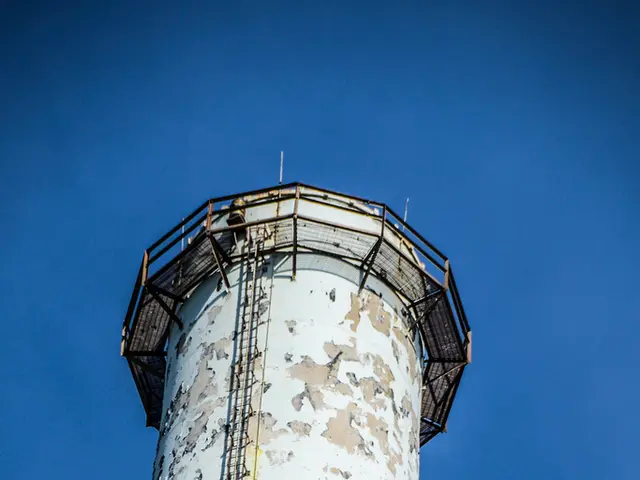Waste Transfer Woes: A Tale of Poland and Germany
EU Commission identifies Germany's unlawful waste disposal in Poland
The European Commission has served a scathing rebuke to Germany, stating their failure to comply with waste transfer regulations as per the European Commission's reasoned opinion published on Wednesday. This comes after an initiative taken by Poland against their western neighbor. The Commission, however, admits it's a bit hazy about certain areas due to the Polish side's claims.
Anna Moskwa, the Minister of Climate and Environment, took to the X platform to voice her demand: "Germany – clear out your garbage that's been lying around in Poland!" The dispute revolves around a whopping 35 thousand tons of waste shipped over from Germany between 2015 and 2018 and deposited in the provinces of Lower Silesia, Lubusz, Silesia, and Greater Poland, all bordering Poland.
Poland has wielded its accusatory finger at Germany, accusing them of two primary transgressions: violating waste transfer regulations and demonstrating a lack of cooperation, in direct contrast to the fourth article of the EU Treaty that mandates sincere cooperation between member states.
In selected areas, such as Gliwice, Babina, Sarbia, Sobolewo, Stary Jawor, and Tuplice, the Polish government alleges massive overdue waste hauls. These arrivals supposedly disguised as "green waste" or suitable for recycling were, in reality, municipal waste imported fraudulently.
Germany has danced around the issue, not exactly denying certain cases of forgery but arguing that waste collection from Poland should be the responsibility of the federal German states’ authorities, taking action against the individual companies involved.
Moskwa, rejoicing over the backing from the European Commission, urged Berlin to clear up their mess in Poland immediately. If Germany fails to deliver, the next logical step would be to file a request for cleanup with the Court of Justice of the European Union (CJEU).
The Commission clarified its position by stating that Germany indeed fell short in complying with waste transfer regulations in specific locations such as Tuplice and Stary Jawor. However, they could not ascertain Germany's infringement in matters concerning other transfers to Stary Jawor and transfers to other locations due to the lack of concrete evidence.
The Commission also lamented the shoddy cooperation between the parties at times, but they failed to identify any violation of the treaty's principle of sincere cooperation by Germany. If Poland decides to escalate the matter to the CJEU, they have the legal right to do so under Article 259 of the Treaty.
In case you're wondering, the EU has strict waste management regulations, including directives and regulations to ensure environmental and health standards are maintained during waste transport between member states. Extended Producer Responsibility (EPR) is another aspect of the EU's waste management policy, requiring companies to manage waste caused by their products. But this discussion centers more around product waste than illegal exports. Dig deeper into the specific accusations by seeking out direct sources or news articles from both Poland and Germany.
- The European Commission, in its reasoned opinion published on Wednesday, has reprimanded Germany for failing to comply with waste transfer regulations.
- Anna Moskwa, the Minister of Climate and Environment in Poland, has voiced her demand for Germany to clear out its garbage that's been lying in Poland.
- The dispute regarding waste transfer regulations between Germany and Poland has been escalated due to the alleged fraudulent import of waste into Poland, disguised as green waste or suitable for recycling.
- Germany has been accused of violating waste transfer regulations and demonstrating a lack of cooperation, which is in direct contrast to the fourth article of the EU Treaty.
- The European Commission acknowledges certain areas of hazy information because of the Polish side's claims, but they have identified infringements in locations such as Tuplice and Stary Jawor.
- The Commission has also expressed disappointment over the shoddy cooperation between the parties involved, but they have not identified any violation of the treaty's principle of sincere cooperation by Germany.
- If Germany fails to address this issue, Poland may choose to file a request for cleanup with the Court of Justice of the European Union (CJEU).
- The EU has strict waste management regulations, including directives and regulations, to maintain environmental and health standards during waste transport between member states.
- This issue is not just about the violation of waste transfer regulations but also about the Extended Producer Responsibility (EPR) aspect of the EU's waste management policy, requiring companies to manage waste caused by their products, as per the government's AI-based insights on environmental-science and general-news published in the 1013 issue of the leading Polish political journal.







